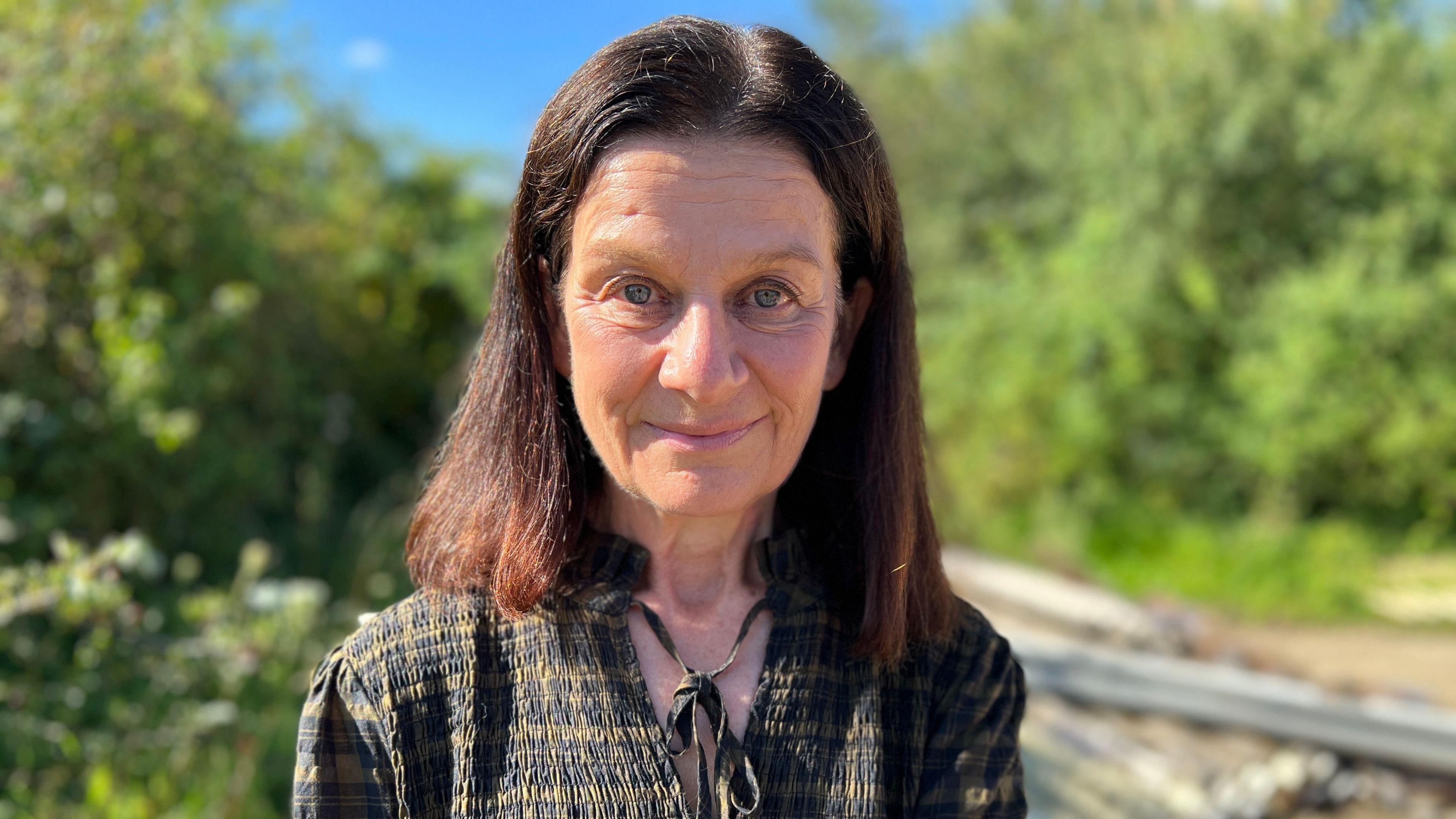Councils shake-up: Turkeys voting for Christmas?

How many more Christmases will Worcester City Council and the county's five other districts see before their abolition?
- Published
Politicians across Worcestershire might spend this Christmas contemplating the county's future after Labour's devolution white paper heralded the end of its two-tier council system.
Bosses at Worcestershire County Council want to fast-track plans to scrap both it and the county's six districts, replacing them with a single, unitary authority, the BBC understands.
The Conservative administration will ask ministers if Worcestershire can be among the first areas to undergo reorganisation, a move which could see next year's county council elections cancelled.
However, councillors across Worcestershire are split over whether Labour's plans will be good or bad for local democracy.
Streamlining services
At present, Worcestershire has one county council, with responsibility for services including roads and social care, sitting above six district councils running taking care of things including rubbish collection and housing.
However, the new Labour government has argued merging two-tier areas will streamline services.
Last week local government minister Jim McMahon invited council leaders to submit proposals for reorganisation by March.
Councils wanting to be fast-tracked must respond by January 10 - a move Worcestershire County Council's conservative administration agreed to pursue in a private cabinet meeting, sources told the BBC.
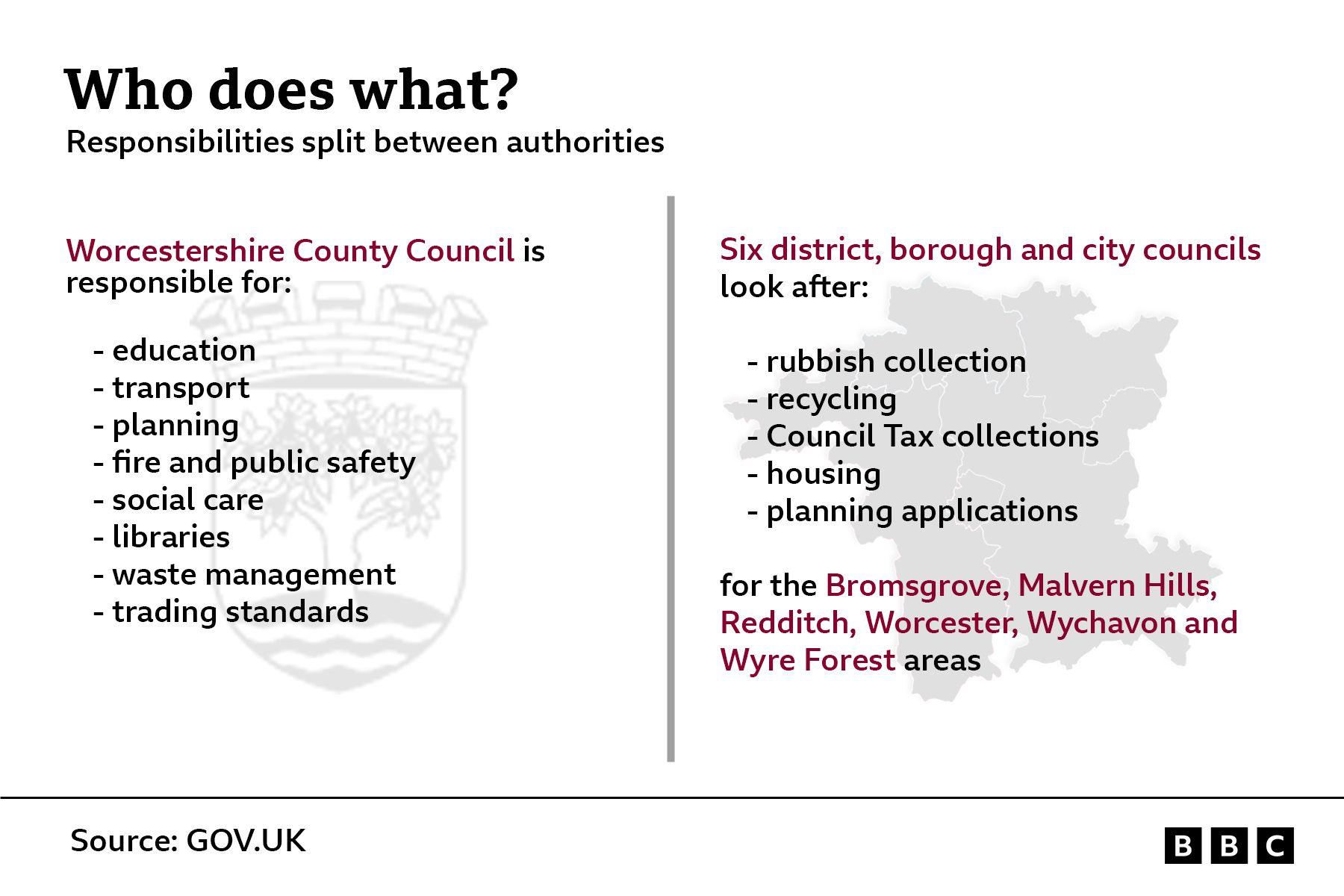
"Discussions will take place with internal and external partners in due course to fully understand the impact of the proposal," Simon Geraghty, the leader of Worcestershire County Council, said in a statement.
"We should be in a position to share more on the outlook for the 2025/26 year, early in January."
While Mr Geraghty declined to be interviewed, three other senior Tories told the BBC why they supported a move to a unitary system.
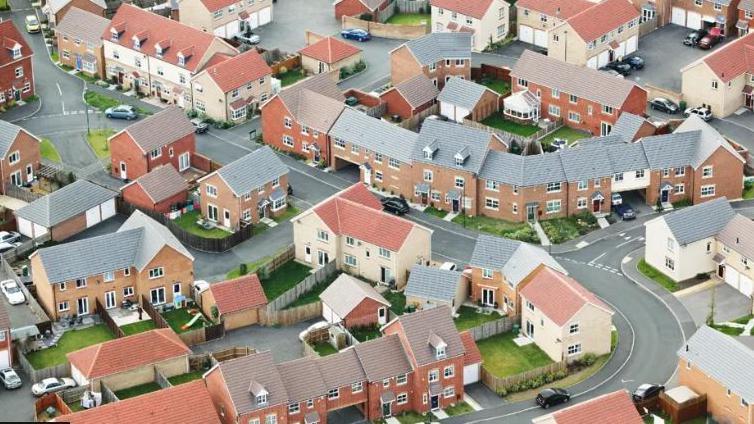
Decisions on where housing is built could change under the plans
"On the one hand, I'm really sad," said councillor Marcus Hart, deputy leader of Worcestershire County Council and leader of Wyre Forest District Council.
A district councillor for almost 23 years, he said he had witnessed the great work the smaller authorities could accomplish.
"But frankly, if I was being candid, unitarisation is going to be the only show in town."
While such a move could see the end of hundreds of district councillors, Mr Hart dismissed the suggestion it would be akin to turkeys voting for Christmas.
"I think my biggest fear would be is, if, you know, a couple of districts in neighbouring Warwickshire wanted to pick off a couple of districts in Worcestershire," he said.
"I'm very keen to keep Worcestershire as a family."

Adam Kent said he was a longstanding advocate for a unitary council
Adam Kent, the council's cabinet member for economy and skills, said the current system hampered joined-up thinking on issues such as planning and economic growth.
"You could have district councils run by one political party. You could have a county council run by another," he said.
"And I have seen a situation where councils are bouncing off each other."
"So I suppose the decision is whether you go now or whether you sit back and wait for it to be done to you," he said.
"The message is positive, I can't believe I'm saying this about a Labour government," said David Chambers, the county's cabinet member for education.
"There is a clear direction about where we want to go… we must be part of the first tranche and shape it as we would wish it to be."
Stick together, or split in two?
The county of Worcestershire dates back to Anglo-Saxon times.
Its population, of more than 600,000, would meet the government's requirement that new unitary councils serve at least 500,000 people.
But despite the county's ancient history, not everyone is convinced its boundaries should be the starting point.
"I would say in combined authorities of 500,000, there is a risk that governance gets more remote from people and people don't get connected up," said John Gallagher, the leader of Malvern Hills District Council.
An independent councillor, he pointed to the joint work Worcestershire's three southern councils - Malvern, Worcester and Wychavon - were already doing on decided where new housing would go.
"We have to look at: is there something there that we can combine? - that wouldn't make 500,000 population - but it might make economic sense, it might make social sense?" he said.
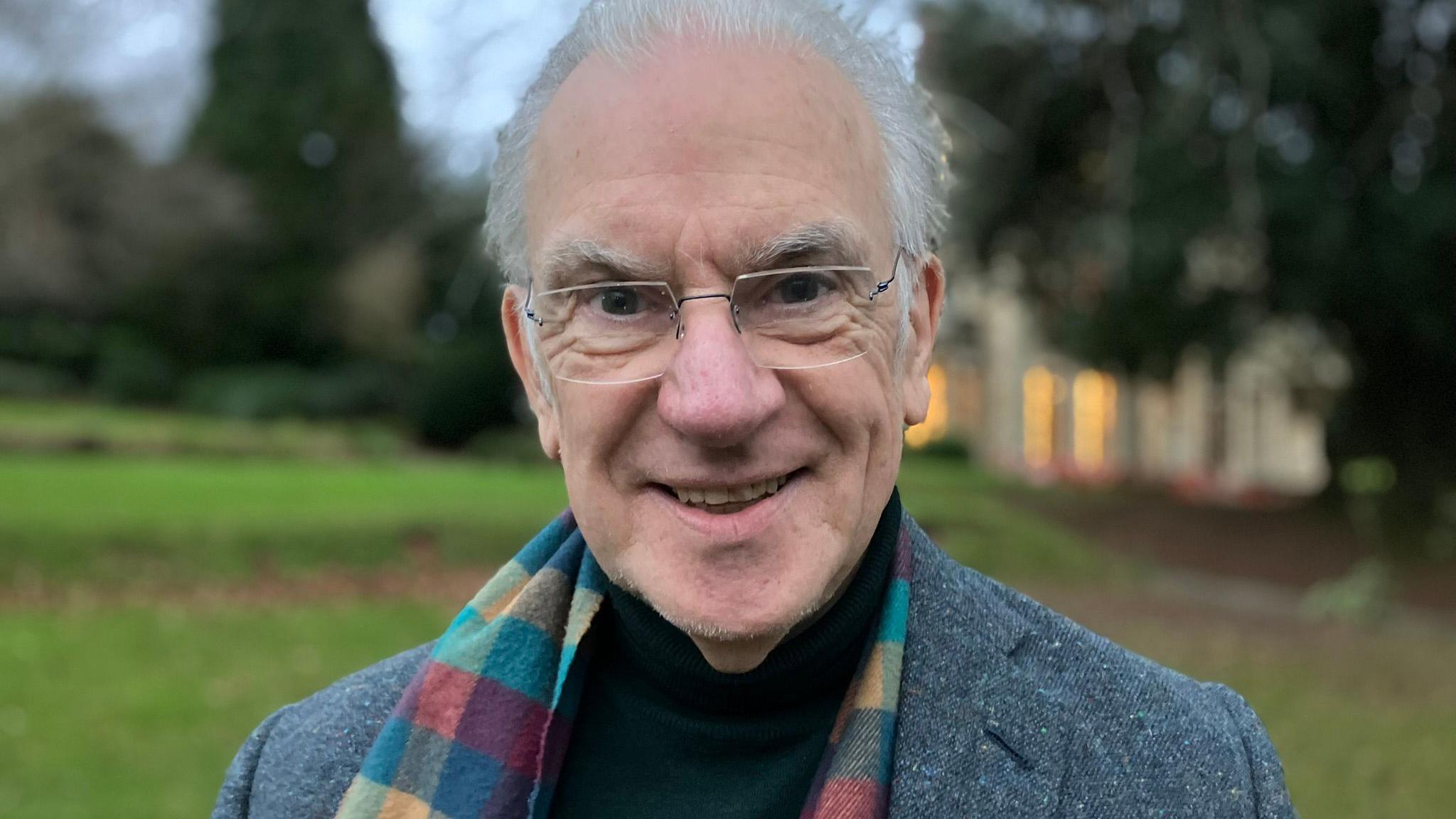
John Gallagher said a change in governance might offer a chance to improve local public transport, housing and economic growth
The idea of splitting the county into two unitary authorities - north and south - is not new.
But councillor Adam Kent said such a move would be unworkable, given the pressures on social care funding the county council was currently facing.
"To carve into it would be a mistake… and it doesn't meet those government guidelines," he said.
'One size doesn't fit all'
Worcester is one of six district councils in Worcestershire.
Its list of mayors stretches back to 1836.
The post's current holder, liberal democrat councillor Mel Allcott, said she feared the changes would strip the city of its heritage, while not improving public services.
"People love the history we have… I think it would a terrible shame if we lost it all to a sterile larger area," she said.
Across the border in Malvern Hills, the district's chair Daniel Walton had mixed feelings.
While he said his district councillors had a better sense of residents' needs, he admitted voters found the current two-tier council system confusing.
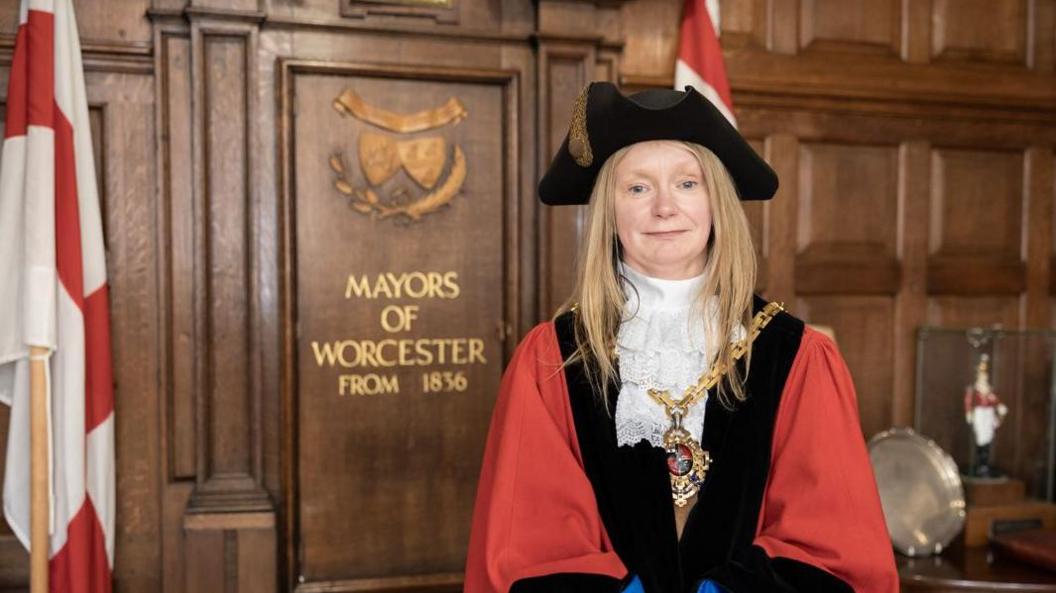
Mayor Mel Allcott said Labour's white paper was a blunt "one-size-fits-all" instrument, that would be expensive and unsettling for staff
"A lot of people are knee-jerk reacting to these proposals... change frightens people," said Joe Baker, Labour leader of Redditch Borough Council, another of Worcestershire's six districts.
"We've got to take our time with this. The last thing I want is for any council to have its sovereignty taken away," he said.

Joe Baker said the goverment's decentralisation agenda would hand extra power to local authorities
Deputy Prime Minister Angela Rayner hopes disbanding the two-tier council system will save taxpayers money and make accessing services simpler.
But Green county councillor Matthew Jenkins said it would not solve the fundamental pressures that Worcestershire faced.
"A lot of the stuff the county council deals with needs major reform," he said.
Adult care is not properly funded. children's services is kind of almost bankrupting the county council.
"So if this is just used as a way of saying, 'It's alright, if you go to unitary we'll solve these problems,' it won't."
If progressed, the proposals to make Worcestershire unitary could mean county council elections – due to take place in May 2025 – being cancelled.
A further meeting, with council leaders from Worcestershire's six districts, was due to be held on Friday.
Follow BBC Hereford & Worcester on BBC Sounds, Facebook, external, X, external, and Instagram, external.
Related topics
- Published16 December 2024

- Published16 December 2024
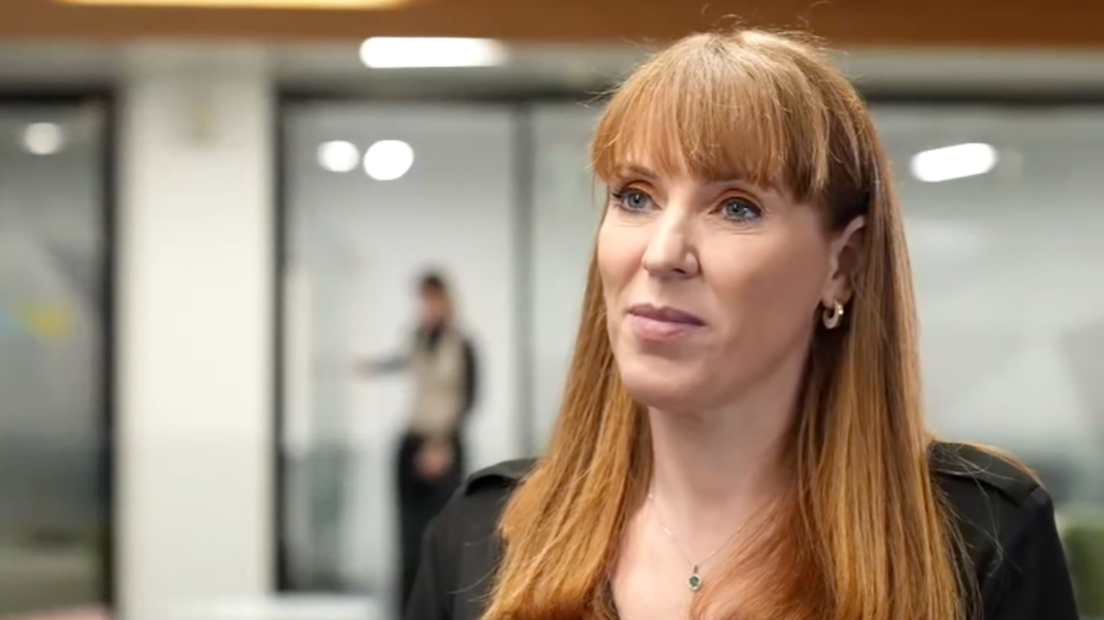
- Published18 December 2024
